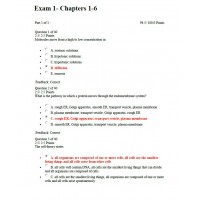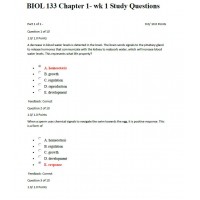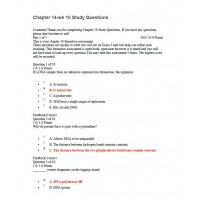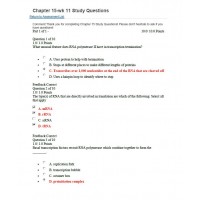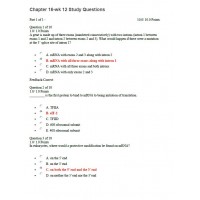BIOL 133 Chapter 13- wk 9 Study Questions with Answers
1. What is the difference between a karyotype and a karyogram?
2. Which is likely to disrupt the function of the most genes: a 500kb deletion, a 500kb inversion, or a 500kb translocation?
3. Why do so many geneticists focus on studying yeast, fruit flies, nematodes, mice or the small plant Arabidopsis?
4. Serious disease syndromes are associated with trisomy of chromosome 21 (Down syndrome), 18 (Edwards syndrome) and 13 (Patau syndrome).
What is the result of trisomy of the other chromosomes?
5. A karyogram that contains 23 pairs of chromosomes with a different pair for the 23rd pair would describe a(n)
6. The most common time individual assortment occurs is when genes are ________?
7. If the parents are AABBCC X aabbcc, what would represent the parental gametes? Select all that apply
8. Nondisjunction during meiosis I will result in ________.
9. Your study partner is confused. “I thought Watson and Crick discovered genes – who are all these other people?” Help out by matching each discovery with the scientist(s) who made it.
10. Combination of alleles that independently assort is usually higher than the number of chromosomes because
| Institution & Term/Date | |
| Term/Date | American Military University |
BIOL 133 Week 9 Chapter 13
- Product Code: 2022
- Availability: In Stock
-
$8.00

